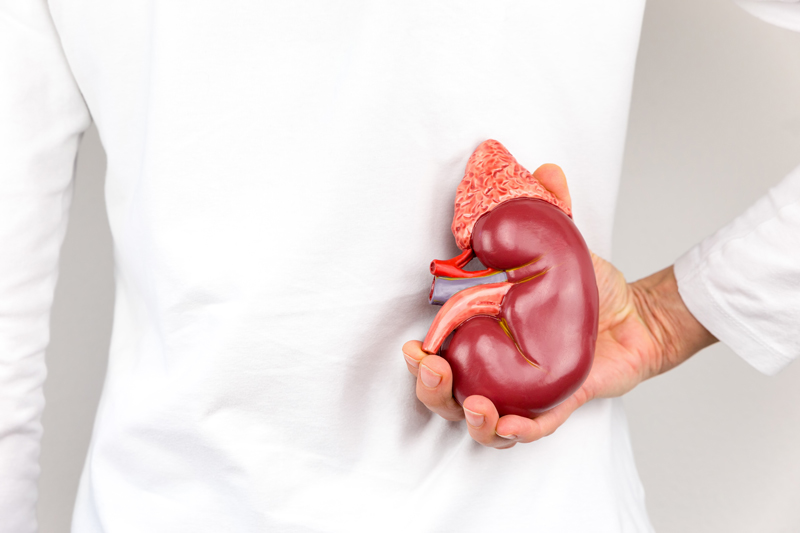
Kidney disease is one of the most prevalent issues plaguing millions of Americans around the world. Unfortunately, people diagnosed with diabetes can also fall victim to the crippling effects of kidney disease. Understanding kidney disease (standard or diabetic) is an integral component of coping with the illness and preventing its effects. Fortunately, advances in medicine have made it possible for people to cope with diabetic kidney disease.
If you’re a diabetic with kidney disease, here are the answers to a few questions you may have for your healthcare provider.
Unfortunately, many people believe that if their kidneys fail, they’ll soon die. This couldn’t be further from the truth. This was true, at least 50 years ago, since there were not enough dialysis machines and knowledge on diabetic kidney disease was limited. This is no longer the case today. Ultimately, how long you can live with diabetic kidney disease depends on your age, additional health problems, and how involved you are in your treatment.
Most people diagnosed with chronic kidney disease won’t develop kidney failure. Some will develop kidney failure, but nonetheless can live for several decades with dialysis treatment and kidney transplants. Healthcare and medicine have evolved tremendously, and specialists now have the tools and resources to slow and combat the effects of diabetic kidney disease.
Still, the most important factor in longevity is how much you’re involved in your own care. Research proves that people who are devoted to bettering their health live longer than those who don’t.
Therefore, if you’re a diabetic with kidney disease, ask your doctor about ways you can manage your condition.
Your quality of life during your condition depends on you. In its early stages, diabetic kidney disease may have subtle symptoms you may never notice. However, in later stages, you could experience loss of appetite, fatigue, and other symptoms that can make you extremely uncomfortable. If you don’t act, then this will be the case. Fortunately, all of these symptoms can be treated. Learning about these symptoms can help you consult your doctor so you can get the help you need.
By following your treatment plan, you can maintain a great quality of life. Also, taking your medications in the right doses can help combat the effects of your condition. In the end, how you take control of your condition will depend on how your quality of life is.
Yes. You can still achieve a great quality of life while on dialysis. Many people, even those that have loved ones on dialysis, still don’t know that there are various types of dialysis treatments. You can select a dialysis treatment plan that allows you to continue living life and doing the things you value. People who are very sick before starting their dialysis treatments often find out that they feel much better during their treatments.
Often times, the unknown is much scarier than the reality. Consult with your doctor to learn all you can about your treatment options.
Fatigue is a common symptom in people with diabetic kidney disease. However, this is the case with a variety of diseases. Even healthy people can struggle with constant fatigue. Sometimes, people diagnosed with diabetic kidney disease can become severely exhaustive and sleep throughout the day, even after a full night of sleep. One prominent reason for fatigue is anemia or the lack of red blood cells which are full of oxygen. People with diabetic kidney disease experience anemia because their damaged kidneys don’t make much erythropoietin (EPO).
EPO sends a signal to your bone marrow to create more red blood cells. Without sufficient red blood cells, your body contains less oxygen.
A lack of EPO will lead you to be cold, tired, and less able to fight your disease. Fortunately, your doctor may prescribe injections of synthetic EPO or iron supplements.
Many people make the mistake of thinking that since their kidneys are already damaged, preserving their kidneys isn’t important and they should just cope with their condition. There are ways to improve your longevity and keep your kidneys functioning well. Lifestyle changes, medications, and several treatments are available to keep your kidneys working longer.
These are the best ways to preserve your kidneys, but remember that it’s also temporary. If you’re on a list to receive a kidney transplant, do all you can to preserve your kidneys.
With that said, you should also practice exercising and healthy eating habits so you can prepare for a future life devoid of kidney damage.
It’s up to you. If you’re a diabetic with kidney disease, you may find that disability pays much less than wages from an actual job. Yet, your bills just won’t go away because of your condition. If you have diabetic kidney disease and still have a job, you should keep it, or find a new one. Working can help restore self-confidence while helping you support yourself.
If your job provides health benefits, it can provide you with the means of paying for your medications. If you are feeling too tired to work, then consult with your doctor immediately.
Fatigue can be caused by anemia, which can be treated by your medication. Alternatively, you can ask for accommodations from your employer, which include a different shift, more break time, etc.
Diabetic kidney disease is a universal condition, but no two conditions are the same. With that said, you should ask your doctor the following questions to learn more about your condition.
Are you a diabetic with kidney disease? Do you want to learn more about how you can cope with your condition? Call us (210) 212-8622 if you’re a new patient and would like to learn more.
2020 © SOUTH TEXAS RENAL CARE GROUP. ALL RIGHTS RESERVED